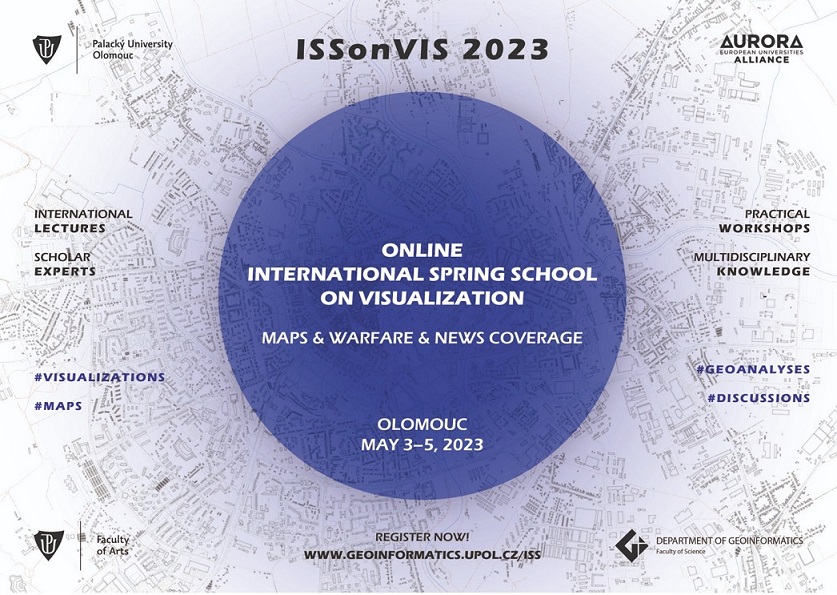ISSONVIS Summer School 2023
This summer school themed Maps & Warfare & News coverage was organised by the Palacky University Olomuluc, and sponsored by the AURORA project and Erasmus+
Below is a list of the lectures included:
- Historical Perspective of the War in Ukraine, Invasions, Media Coverage and European Security in the War’s Aftermath
- Geopolitics And Big Tech – Legitimizing Collaborations
- Energy Security and Geopolitics in Contemporary Europe
- American Czechs in World War II: The Benefits and Limits of User Participation And GIS
- Maps Of Languages and Their Dialects in Current Geopolitics
Lecture Summary
During this Summer school, pertinent issues relating to the role GIS and cartography can play in tracking Defense, Military and Politics. In these five enlightening lectures, diverse aspects of geopolitics and international affairs were explored, shedding light on historical events and contemporary challenges.
The first lecture focused on the ongoing war in Ukraine, delving into its historical context since and its revolutionary beginnings in 2014, the actual invasions in 2022, its global and local media coverage, and the resulting European security implications.
The role of big tech companies in legitimizing collaborations and its impact on geopolitics was analyzed in the second lecture. Participants were introduced to research which tried to explore the role being played by privately owned big-tech firms in government defense projects. Cases such as the infamous USA’s multibillion-dollar JEDI project and its aftermath were discussed.
The third lecture examined the intricate interplay between energy security and geopolitics in contemporary Europe. It shed light on the historical energy relations between western, central and eastern Europe and how it has shaped the current political landscape developing some countries and leaving others at the former’s mercy. This lecture involved a hands-on guided practice which challenged participants to map out the optimal route for pipelines carrying valuable energy products through Europe.
The fourth lecture focused on the recognition and documentation of the American Czechs and their role in the pollical history of both Czech Republic and America. The challenges of digitally documenting thousands of unstructured historical documents and the its spatial analysis was also explored.
Lastly, the fifth lecture saw participants exploring the significance of maps in understanding linguistic diversity within current geopolitical contexts. The technical and practical aspects of mapping languages were also analysed.





